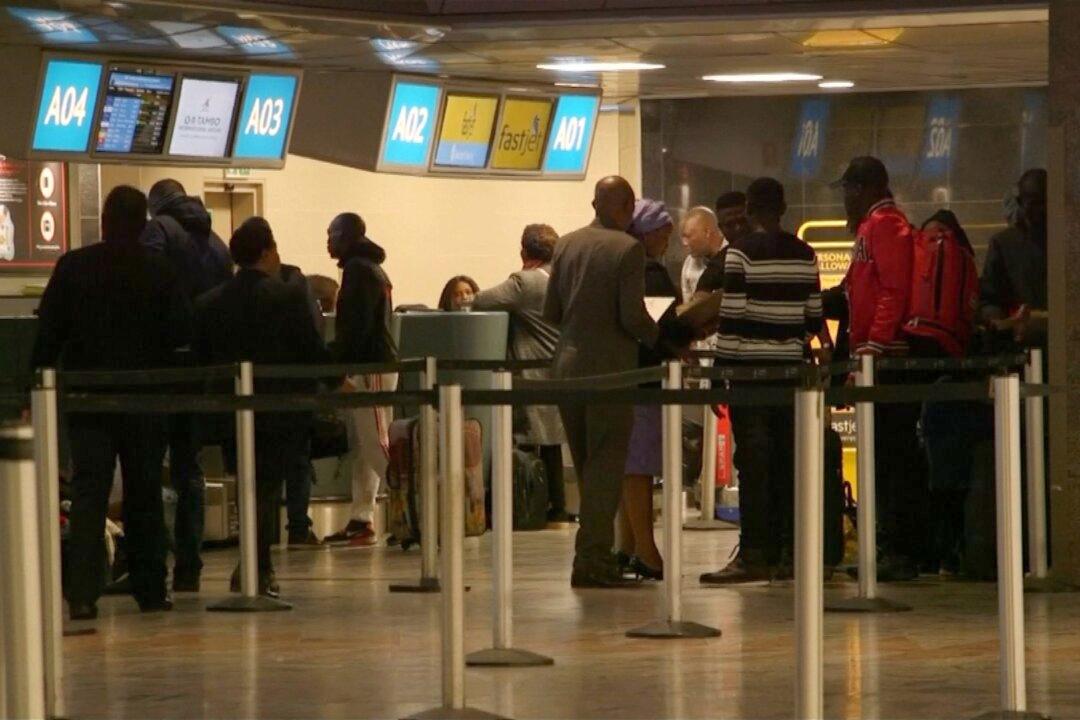ABUJA/CAPE TOWN—At least 640 Nigerians have signed up to take free flights home from South Africa after xenophobic attacks on foreigners, a spokeswoman for Nigeria’s president said on Tuesday, Sept. 10.
The flare-up in violence directed against mainly African foreigners has been widely condemned by South Africa’s neighbors and has caused a diplomatic dispute between Nigeria and South Africa, the continent’s top two economies.





